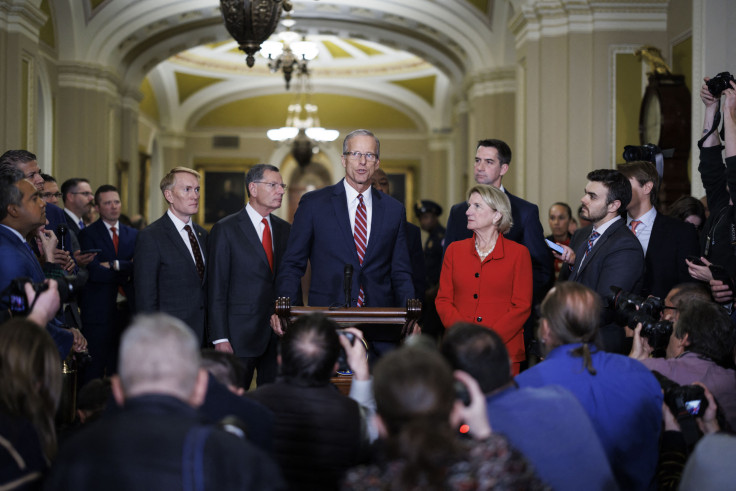
President-elect Donald Trump is moving quickly to fill his Cabinet positions, appointing eyebrow-raising names like Florida Rep. Matt Gaetz and once-rival Robert F. Kennedy Jr. But as he hopes to have his secretary positions in line by Inauguration Day, he will first need to get Senate approval.
Having a Senate reject a Cabinet nominee is extremely rare. But with Gaetz on the list, a Congressman who has been the subject of a federal investigation for sex trafficking by the Department of Justice, and who has allegedly bragged to other members of Congress about having sexual relations with minors, some Republican leaders are wondering if he is the best pick.
"I do not see him as a serious candidate," said Sen. Lisa Murkowski of Alaska about Gatz's nomination. "The president is free to nominate whoever he may wish. Our constitutional role in nominations is to provide advice... I don't know that any of my Senate colleagues advise that Matt Gaetz name should go up, but it's what (Trump) apparently has advanced. But, then our role is to determine the consent end of it. Do we give our consent or do we not?"
As it seems that Trump will face obstacles in getting some of his appointments through, he is now pushing for the GOP-led Senate to take extended breaks that would allow him to make recess appointments.
These types of appointments allow presidents to fill out their administrations while the Senate is in recess. Historically, Congress would take months-long breaks from Washington, and presidents could use recess appointments to avoid having an important job go unfilled. But recently, the process has been featured in partisan fights with the president.
But a 2014 Supreme Court ruling put a check on the president's power to make recess appointments. In that case, SCOTUS rules that the Senate has to recess or adjourn for 10 days before a president can make unilateral appointments. That resulted in a practice where the Senate— even during weeks-long breaks— still holds pro-forma sessions where one senator opens and closes the chamber, but no legislative business is conducted. The House can also influence the process by refusing to allow the Senate to adjourn.
Experts in American democracy say Trump's call for recess appointments is the first major post-election test for Republicans in Congress of whether they will stand up for traditional checks and balances or bend to Trump's desire not to have his choices questioned, according to The Washington Post.
If the Senate ends up agreeing to adjourn for the purpose of Trump filling his government without congressional input, it would be "an absolute abdication of their constitutional power," said Sarah Binder, a political science professor at Georgia Washington University.
"It's saying, 'Look, we are so loyal to President Trump, we're so loyal that we're going to choose him over our rights and our responsibilities as senators,'" she said. "It doesn't get more stark than that."
It remains unclear which path the Senate will choose to follow. For one, the incoming Senate Majority Leader Sen. John Thune (R-S.D.) said when he was campaigning for the top position among his colleagues, that he was open to recess appointments if needed to get Trump's nominees in place quickly.
However, after he received the title once held by Mitch McConnell, Thune expressed a preference for using "the regular process to get these nominees through" and said his "intention is to get these folks going and get voting."
Democrats on the other hand, could also have a trick up their sleeve, using procedural tactics to slow down a vote to adjourn that could require a 60-vote filibuster-proof majority to overcome. And the Republican majority in the House is projected to be narrow, meaning that calling a recess could be tricky.
© 2024 Latin Times. All rights reserved. Do not reproduce without permission.








